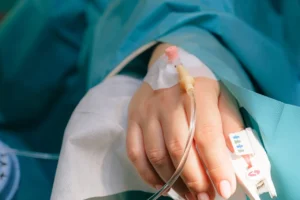
Voydeya (danicopan) Receives EU Approval as Supplemental Treatment for Adults with PNH and Residual Hemolytic Anemia
Voydeya (danicopan) has gained approval in the European Union (EU) to be used alongside ravulizumab or eculizumab for managing adult patients with paroxysmal nocturnal hemoglobinuria (PNH) who continue to experience hemolytic anemia. This approval marks a significant advancement, offering a novel therapeutic option for approximately 10-20% of PNH patients who encounter clinically significant extravascular hemolysis (EVH) despite being treated with a C5 inhibitor.
The decision by the European Commission (EC) follows a favorable recommendation from the Committee for Medicinal Products for Human Use and is supported by data from the pivotal ALPHA Phase III trial. Results from the primary evaluation period of this trial, spanning 12 weeks, were published in The Lancet Haematology.
Professor Hubert Schrezenmeier, MD, Medical Director at the Institute of Transfusion Medicine, The University of Ulm, emphasized the significance of Voydeya’s approval, stating that it introduces a crucial innovation for patients experiencing ongoing symptoms of anemia due to EVH despite C5 inhibitor therapy. This approval offers these patients an option to address EVH manifestations while maintaining standard-of-care treatment with Soliris or Ultomiris, thereby helping to prevent potentially life-threatening complications associated with PNH.
Marc Dunoyer, Chief Executive Officer of Alexion, highlighted the efficacy of Voydeya in managing signs and symptoms of clinically significant EVH, including anemia, while patients continue on their standard-of-care regimen with Soliris or Ultomiris. The approval sets the stage for making this first-in-class Factor D inhibitor accessible to patients across Europe and advancing global access.
The ALPHA Phase III trial assessed the efficacy and safety of Voydeya as an add-on to Ultomiris or Soliris in PNH patients experiencing clinically significant EVH. Results demonstrated Voydeya’s ability to meet the primary endpoint of hemoglobin change from baseline to week 12, as well as key secondary endpoints such as transfusion avoidance and improvement in Functional Assessment of Chronic Illness Therapy – Fatigue (FACIT-Fatigue) score.
Importantly, Voydeya was well tolerated in the trial, with no new safety concerns identified. Common treatment-emergent adverse events included headache, nausea, arthralgia, and diarrhea.
Voydeya has garnered Breakthrough Therapy designation from the US Food and Drug Administration (FDA) and PRIority MEdicines (PRIME) status from the European Medicines Agency (EMA). It has also received Orphan Drug Designation in the US, EU, and Japan for PNH treatment. Voydeya is approved in the US and Japan, with regulatory reviews underway in other regions.
Paroxysmal Nocturnal Hemoglobinuria (PNH) is a rare, chronic, and potentially life-threatening blood disorder characterized by red blood cell destruction within blood vessels and activation of white blood cells and platelets, leading to blood clots. EVH, the removal of red blood cells outside of blood vessels, can occur in PNH patients treated with C5 inhibitors, resulting in continued symptoms of anemia.
The ALPHA trial, a global Phase III study, evaluated Voydeya’s efficacy and safety as an add-on to C5 inhibitor therapy in PNH patients experiencing clinically significant EVH. Voydeya selectively inhibits Factor D, a complement system protein crucial in amplifying the complement system response, which is implicated in PNH pathology.
Alexion, AstraZeneca Rare Disease, is dedicated to serving patients and families affected by rare diseases through the discovery, development, and delivery of transformative medicines. With a focus on rare diseases for over three decades, Alexion continues to expand its global footprint to reach more patients worldwide, building a diversified pipeline to address significant unmet medical needs.




